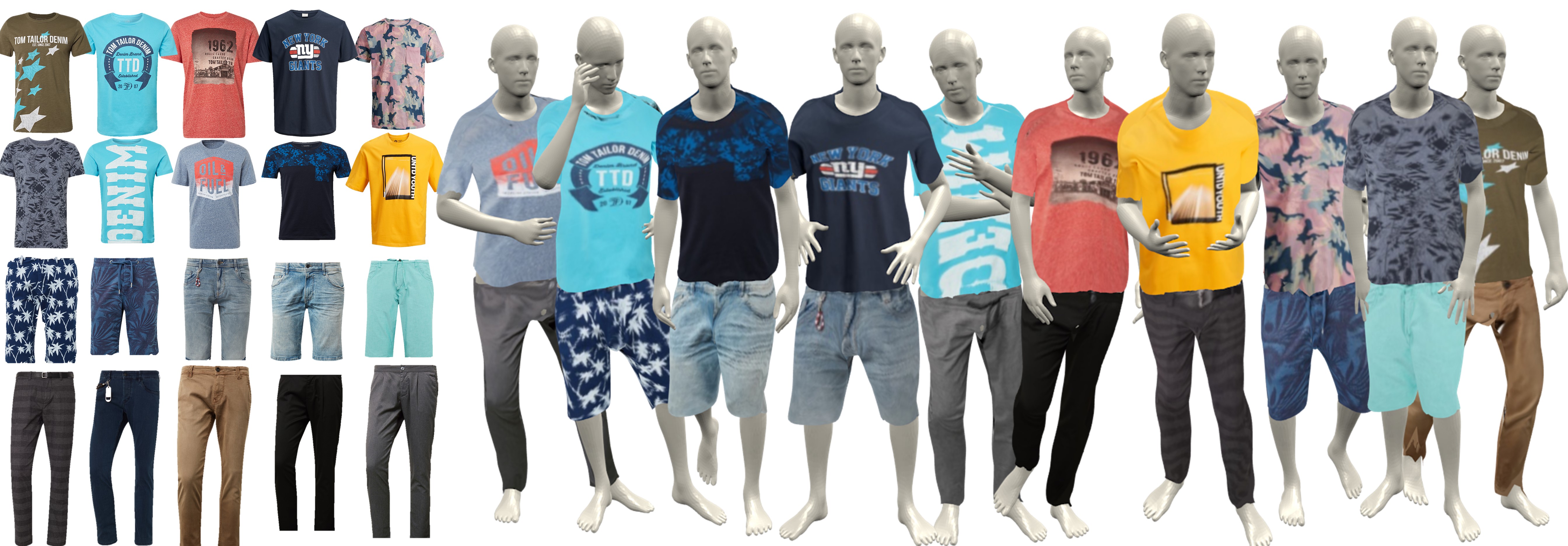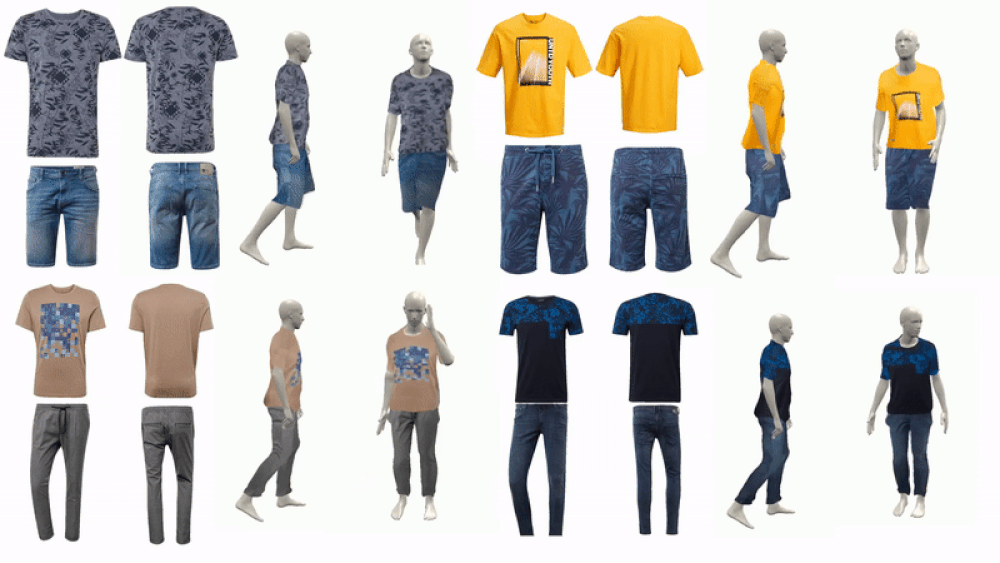Learning to Transfer Texture from Clothing Images to 3D Humans
Aymen Mir, Thiemo Alldieck, Gerard Pons-Moll
Proceedings of IEEE Conference on Computer Vision and Pattern Recognition 2020
This repository contains code corresponding to the paper "Learning to Transfer Texture from Clothing Images to 3D Humans"
To run the demo you will need blender. This code has been tested with blender 2.79. Please download it from here.
Clone the repo:
git clone https://github.com/aymenmir1/pix2surf
Install the requirements using conda:
source scripts/install_conda.sh
Download pretrained weights and other assets:
source scripts/prepare_data.sh
Running the demo is as simple as:
python demo.py
The script produces a video in which the front and back views of a T-shirt and a pair of shorts are rendered atop a textured SMPL mesh. By changing the parameters in the script, different textures and garment classes can be rendered atop SMPL. Example:
python demo.py --pose_id 2 --img_id 4 --low_type 'pants'
We provide five pairs of upper and lower clothing images to run our demo script. Please note that we do not own the copyrights of the clothing images. These are released merely for demonstration and should not be used for any other purpose. By excuting the script to download data, you automatically consent to the license agreement of the SMPL body.
The training data for all neural models was obtained from the following websites:
We do not own the copyrights to these images. These can be downloaded using a web scraper. Once this is done, we obtain silhouettes of these clothing images by a mixture of manual and autmatic execution of grab cut .
Sample masks and texture images are stored in the ./train/data directory.
The code for obtaining the correspondence and texture maps is in the ./prep_data directory. All three scripts for silhouette matching, correspondence extraction and texture map extraction can be executed using the command
python ./prep_data/run.py
The dependencies for running the three scripts can be found in the requirements_prep_data.txt file
Once the data has been obtained, the mapping and segmentation networks can be trained using the scripts provided in the train directory using the commands :
python train_seg.py
python train_map.py
If you find our code useful, please consider citing our paper
@inproceedings{mir20pix2surf,
title = {Learning to Transfer Texture from Clothing Images to 3D Humans},
author = {Mir, Aymen and Alldieck, Thiemo and Pons-Moll, Gerard},
booktitle = {{IEEE} Conference on Computer Vision and Pattern Recognition (CVPR)},
month = {jun},
organization = {{IEEE}},
year = {2020},
}
This code is available for non-commercial scientific research purposes as defined in the LICENSE file. By downloading and using this code you agree to the terms in the LICENSE.

